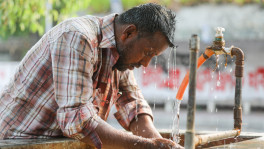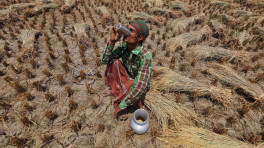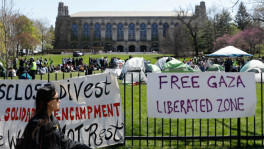The risks of swiftly spreading coronavirus research
A Reuters analysis found that at least 153 studies, involving 675 researchers from around the globe examining every aspect of the disease COVID-19, have been posted or published since the start of the outbreak

One scientific post suggests links between the new coronavirus and AIDS, a second says it may have passed to people via snakes, while a third claims it is a pathogen from outer space.
The emergence in China of a new human coronavirus that is causing an epidemic of flu-like disease has sparked a parallel viral spread: science – ranging from robust to rogue - is being conducted, posted and shared at an unprecedented rate.
While speedy scientific analysis is highly useful if it's good, flawed or misleading science can sow panic and may make a disease epidemic worse by prompting false policy moves or encouraging risky behaviour.
A Reuters analysis found that at least 153 studies - including epidemiological papers, genetic analyses and clinical reports - examining every aspect of the disease, now called COVID-19 - have been posted or published since the start of the outbreak. These involved 675 researchers from around the globe.
By comparison, during the 2003 SARS outbreak, it took more than a year for even half that number of studies to be published.
Richard Horton, editor-in-chief of The Lancet group of science and medical journals, says he's instituted "surge capacity" staffing to sift through a flood of 30 to 40 submissions of scientific research a day to his group alone.
Much of this work, according to those watching its flow and content, is rigorous and useful. Vaccine developers, clinicians, diagnostic makers and policy agencies have snapped up genetic codes, phylogenetic trees and epidemiological models to help them start work on catching the virus and containing its spread.
But much of it is raw. With most fresh science being posted online without being peer-reviewed, some of the material lacks scientific rigour, experts say, and some has already been exposed as flawed, or plain wrong, and has been withdrawn.
"The public will not benefit from early findings if they are flawed or hyped," said Tom Sheldon, a science communications specialist at Britain's non-profit Science Media Centre.
"Preprints"
The threat posed by the new coronavirus requires that information be shared quickly and freely "without being yoked to peer review", Sheldon said - and that is causing problems.
The outbreak has in particular encouraged "preprints" - the practice of researchers immediately posting online their findings without external checks, scrutiny or validation.
The Reuters analysis scanned material on Google Scholar and on three preprint servers bioRxiv, medRxiv and ChemRxiv. Of the 153 studies identified, some 60% were preprints.
Preprints allow their authors to contribute to the scientific debate and can foster collaboration, but they are not peer-reviewed and can also bring researchers almost instant, international media and public attention.
"Some of the material that's been put out - on preprint servers for example - clearly has been... unhelpful," said The Lancet's Horton. "Whether it's fake news or misinformation or rumour-mongering, it's certainly contributed to fear and panic."
BioRxiv has now added a yellow banner warning label across the top of any new coronavirus research which reads: "A reminder: these are preliminary reports that have not been peer-reviewed. They should not be regarded as conclusive, guide clinical practice (or) health-related behaviour, or be reported in news media as established information."
One example was work by scientists in New Delhi, India, who on January 31 posted research pointing to what they called "uncanny" similarities between the new coronavirus and HIV, the virus that causes AIDS.
The work was criticised by scientists around the world and swiftly retracted, but had already featured in more than 17,000 tweets and been picked up by 25 news outlets.
Another was a submission sent to The Lancet by a researcher working in Britain who claims the source of the new coronavirus may be "viral in-fall" from outer space.
And a study published online in the Journal of Medical Virology on January 22, now known as "the snake paper", led to a rush of rumours that the China disease outbreak may be a kind of "snake flu". Leading genetic experts cast swift doubt on the paper's findings, but not before it had gone viral.
Pressure
Part of the problem is pressure. To be first with a scientific finding is good for profile and for future funding - especially in the context of a fast-developing international disease outbreak.
"Due to the evolving nature of the (coronavirus) outbreak, scientists are often under pressure to communicate their findings in real time," said Efstathios Giotis, an infectious disease expert at Imperial College London.
All research claims ought to be rigorously and independently scrutinised by experts in the field, but that is often not happening with work on the new coronavirus, Giotis said.
Magdalena Skipper, editor-in-chief of Nature, said her group of journals, like The Lancet's, was working hard to "select and filter" submitted manuscripts.
"We will never compromise the rigour of our peer review, and papers will only be accepted once ... they have been thoroughly assessed," she said.


 Keep updated, follow The Business Standard's Google news channel
Keep updated, follow The Business Standard's Google news channel
















